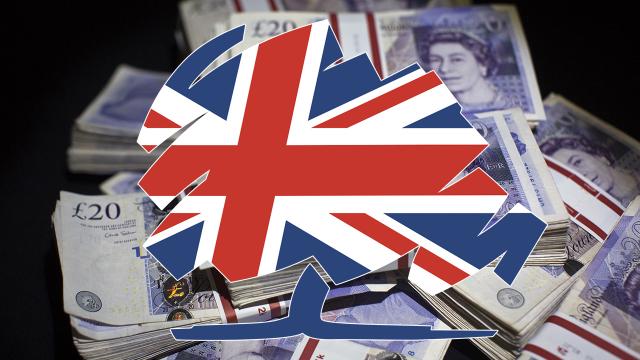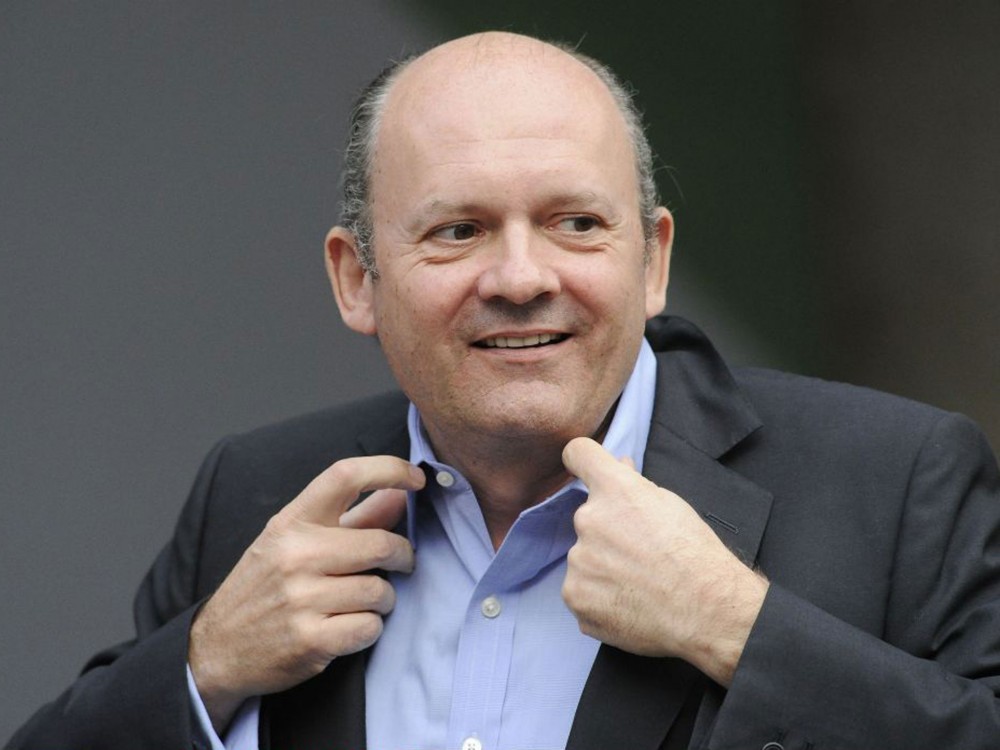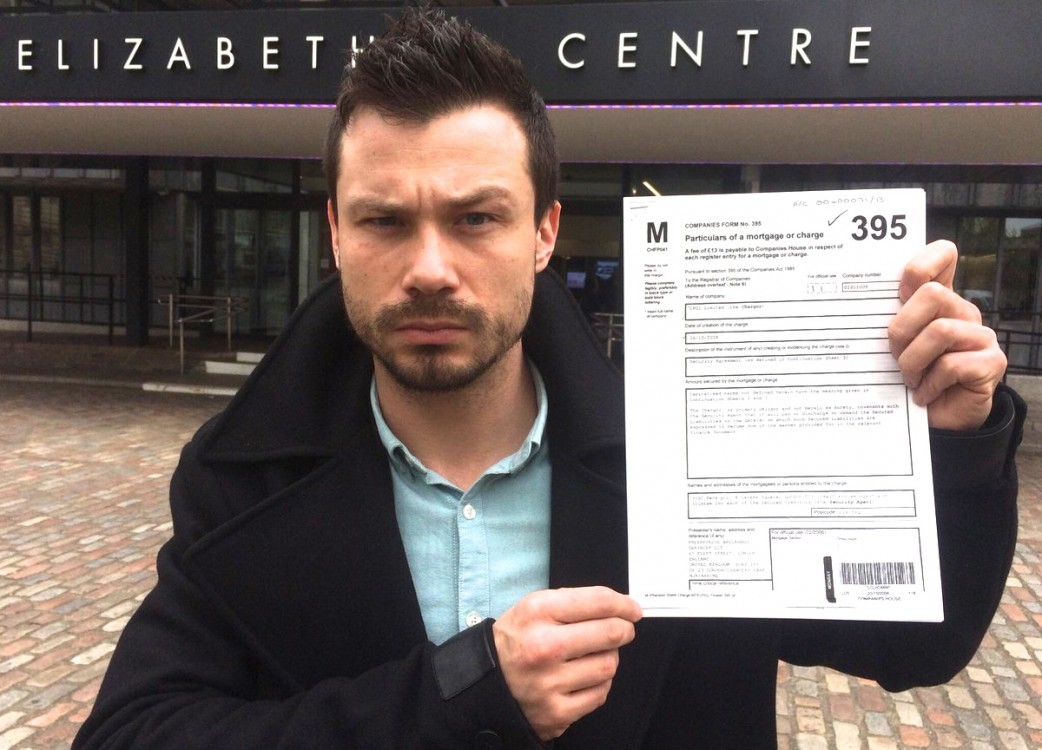
Leaks suggest that Britain’s biggest bank, HSBC, has awarded dubious loans to leading British Conservative Party donor and former treasurer Michael Spencer. Under the 2007 Money Laundering Protocol, banks are under legal obligation to carry out an assessment of anyone deemed a "politically exposed person".
Campaigners suggest they did not.
In turn, claims are circling that the Conservative government repaid the bank for its favorable oversight by letting it off lightly after a series of malpractices. The charges against HSBC have global implication as these and further details went viral on social media this week trending #DirtyToryMoney.
The timing of the allegation could have explosive impact. On Tuesday, Occupy.com revealed the intensifying Tory election fraud saga that could see sitting Members of Parliament sent to jail for breaking election spending rules. Enough MPs are charged to end the party’s parliamentary majority.
Now, with leaks turning into a torrent, the recognition of systemic fraud may shift the forthcoming General Election result.
What is #DirtyToryMoney About?
Documents seen by Occupy.com show that in November 2008, HSBC loaned £214 million to the private equity firm IPGL. That company, along with Spencer’s other array of firms, hit financial problems during the financial crash. At the time, Spencer was Treasurer of the Conservative Party, and he remains a key donor and leading fundraiser.
Despite occurring during the financial crisis, and with IPGL recording a loss, the firm decided to back the Conservatives with political donations. Information from the Electoral Commission records that IPLG and Spencer’s other subsidiaries donated over £5 million to the Conservative Party, including sizable donations in 2008 and 2009.
In both years, IPGL's accounts were in the red.
This evidence was released to the press by campaign group Move Your Money and Debt Resistance U.K..
In a joint press release, the groups asserted: “HSBC has won significant concessions from successive Conservative governments on tax, the bank levy, Mexican money laundering & terrorist financing investigations, as well as over the Swiss Leaks & Panama Papers.”
The charges suggest HSBC allowed shadowy money through IPGL that ended up flowing to the Conservatives, which bough both HSBC and IPGL influence.
Reacting to the accusations, Labour MP John Mann stated: “This is a very major regulatory issue and needs assessing for potential criminal behavior. It's political games being played in the hope of a weaker approach to bankers’ fraud.”
Roger Mullin, Scottish National Party Treasury spokesperson, published an open online letter to the Electoral Commission questioning whether fraud had been committed. The commission responded with haste, even before the letter was officially delivered, saying the case did not break election rules.
But if anti-money laundering protocols have been flouted, criminal investigations could, and should, ensue.
How Deep is the British Government in HSBC’s Pocket?
Circumstantial occasions when HSBC money may have bought influence are abundant. The three headlines below are far from isolated:
"HSBC Swiss leaks: Labour's Ed Balls blasts George Osborne for tax avoidance 'total failure'" (International Business Times)
"Too Big To Jail: George Osborne helped HSBC avoid US criminal charges for money laundering" (Business Insider U.K.)
"A British snub of the E.U. investigation into the Panama Papers is short-sighted" (Guardian)
Not only that, but HSBC was heavily implicated in corruption revealed by the Panama Papers, when Ed Balls was Labour’s shadow chancellor. The mention of former chancellor George Osborne (2010-16) in the headlines is especially relevant, as he was among senior Tories who received funding from HSBC executives.
The donations appear to break the bank’s anti-corruption code. Osborne was further criticised for personally intervening with U.S. authorities to dampen the fine for money laundering for terrorists and drug cartels. Despite the intervention, HSBC still received a record fine.
In fact, the revolving door has spun constantly between the U.K. government and HSBC since 2010. Despite her connections to the money laundering crimes while serving as a director at HSBC, Rona Fairhead was appointed to chair the BBC Trust. Former HSBC Chairman Stephen Green was made a government minister for trade. Lord Rose, another businessman made a peer by the Conservatives, is also an HSBC advisor. And a further link can be made via the Swiss tax evasion scandal, in which it was widely reported that in 2015 the Conservatives received £5 million from financial elites caught up in tax avoidance schemes, including another former party treasurer and hedge fund manager, Lord Fink.
Heads Must Roll
It is essential to recognize that the pivotal player in this story is Michael Spencer, one of the rare senior Tories who has not been made a lord. Consider the levels of favor he has bought by donating to and fundraising for the government. As Occupy.com reported last month, further claims have showed that the British state was complicit in LIBOR rigging and that Spencer’s firm ICAP was a "lynchpin" in the biggest ever rigging scandal.
Spencer was never investigated formally for his role leading the company in this matter.
Looking at the City of London as a whole, it's easy to focus on some rotten apples, especially those with the most noxious allegations flying round them. Yet on a monumental scale, particularly since the financial crash, the City has been bankrolling the Tories with with ever fatter sums. Calls are now growing to undertake serious investigation and determine whether that money enabled specific examples of fraud, mis-selling, rigging, tax evasion and other crimes and malpractices with global consequences.
The dirty money revelations also tie to the ongoing case of Tory election fraud, suggesting something extremely toxic has been brewing in Britain’s political system. On one side, you have a political party backed to the hilt by billionaire bankers and the City, bending or outright breaking the rules to support the party that does their bidding. On the other, this story suggests a Conservative political party so flush with cash that when it comes to elections, it can throw more money than it is allowed to rig the outcome.
3 WAYS TO SHOW YOUR SUPPORT
- Log in to post comments















